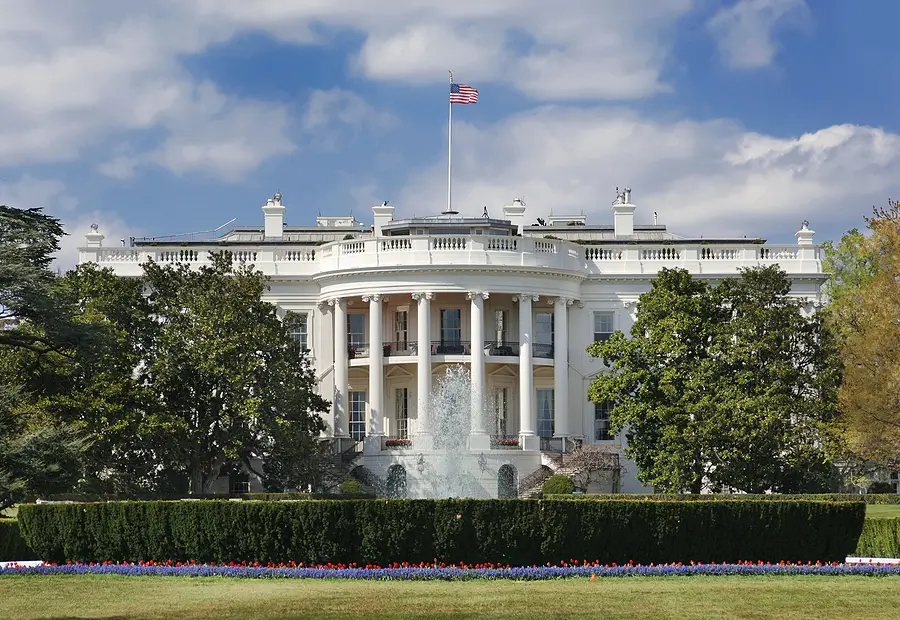As the next presidential election approaches in November, landlords and real estate investors like you are naturally curious about how the housing market might respond. Election years bring both challenges and opportunities for the real estate sector.
The outcome of the election and the policies proposed by candidates can directly impact interest rates, consumer confidence, and even regional market behaviors. Understanding these influences is essential for landlords like you to manage uncertain times while protecting your investments.
Market Uncertainty and Consumer Confidence
One of the most immediate effects of a presidential election year is heightened uncertainty in the housing market. Consumer confidence tends to dip during election periods as voters wait to see who will be elected. As a result, both buyers and sellers often adopt a "wait-and-see" approach, slowing down market activity.
For you, this uncertainty can create both challenges and opportunities. Fewer people may be inclined to purchase homes, boosting demand for rental properties. Conversely, tenants may hesitate to sign new leases due to uncertainty surrounding job stability and future housing market policies.
Interest Rates and Mortgage Lending
Election years often have an indirect effect on interest rates. The Federal Reserve is generally cautious about making significant changes until after the election. The Fed avoids rate hikes during election periods to maintain political neutrality. As a result, rates tend to remain lower, which temporarily improves affordability for homebuyers and real estate investors.
For landlords like you, lower rates might present a favorable opportunity for refinancing existing mortgages or even investing in additional rental properties. However, this benefit may be short-lived, as the new administration’s fiscal policies could influence interest rate hikes once the election ends.
Policy Proposals and Housing Legislation
The outcome of a presidential election can significantly impact housing policy and legislation. Each candidate brings a different approach to affordable housing, rent control, and real estate taxes. Some candidates might propose stricter rent control measures, which could limit your ability to raise rents, affecting profit margins.
On the other hand, some candidates may propose tax incentives for real estate investors, opening new opportunities to expand your rental portfolio. Staying informed about proposed housing legislation is crucial to making informed decisions about your investments. Being proactive allows you to adjust your strategy if policies that affect taxes, rental income, or depreciation rules are likely to be introduced after the presidential election.
Regional Variations in Market Response
While national housing market are affected by election-year dynamics, regional markets can react differently. Data shows that urban centers with political or economic significance often experience more noticeable fluctuations. Cities like Washington, D.C., and New York City are likely to see greater changes in home prices and rental demand due to their strong ties to political and financial markets.
In contrast, suburban and rural areas may experience minimal shifts. Local factors such as employment trends and housing supply play a more critical role in shaping market conditions in these areas. For you, understanding regional dynamics is crucial to managing vacancies, rental pricing, and tenant retention during an election year.
Long-Term Resilience of the Housing Market
Despite the short-term uncertainty during presidential election cycles, the housing market tends to show long-term resilience. Data suggests that while market activity dips in the months leading up to the election, it usually rebounds once the political industry becomes clearer. This means that presidential election-year fluctuations are likely to be temporary.
As a landlord, maintaining a focus on the long-term outlook is important. While demand for rental properties might soften temporarily due to election-related uncertainty, the housing market has consistently proven its ability to recover.
Strategic Considerations for Landlords
Given the uncertainties that come with an election year, you should be prepared to adapt your strategies to market conditions.
Below are some strategic considerations:
Refinance If Possible: If interest rates drop during the presidential election cycle, it may be a good time to refinance your existing mortgage to lock in a lower rate. This can reduce your monthly payments and improve cash flow.
Monitor Policy Proposals: Stay informed about potential housing market policies and tax changes that could affect your rental income or expenses. Understanding what’s happening will help you make better investment decisions.
Explore New Investments: If the market slows due to election-year uncertainty, it could be a good time to explore new real estate investments. Fewer buyers in the market may lead to better deals on properties, especially in regions less affected by election-year volatility.
Maintain Tenant Relationships: Focus on tenant retention during the months leading up to the election. Offer lease renewals or incentives to keep occupancy high, especially if market uncertainty causes tenants to hesitate on making big moves.
Factors Influencing Housing Demand
Housing demand is shaped by several factors, each playing an important role in the dynamics of the housing market.
These factors include:
Urban Development: Availability of housing in urban areas influences demand, especially among younger buyers who prefer city living.
Existing Home Sales: The volume of existing home sales affects housing market demand by influencing available inventory.
Mortgage Rates: Low mortgage rates boost demand, while rising rates deter prospective buyers.
Median Price: High home prices can reduce demand, while more affordable prices attract a larger pool of buyers.
Wage Growth: Strong wage growth increases purchasing power, enabling more people to buy homes.
Home Equity: High equity levels can encourage homeowners to sell, increasing market activity.
Housing market trends during election years bring a mix of challenges and opportunities for landlords. Whether you're dealing with market uncertainty, fluctuating interest rates, or potential policy changes, having a knowledgeable property manager can make all the difference. At GC Realty & Development, we specialize in helping landlords like you maximize returns.
Don’t let the uncertainty of an election year hold you back—reach out to us today for a free consultation and learn how our services can keep your rental income steady. Explore our services and let us help you make the most of your real estate investments!

 Vendor Portal
Vendor Portal

